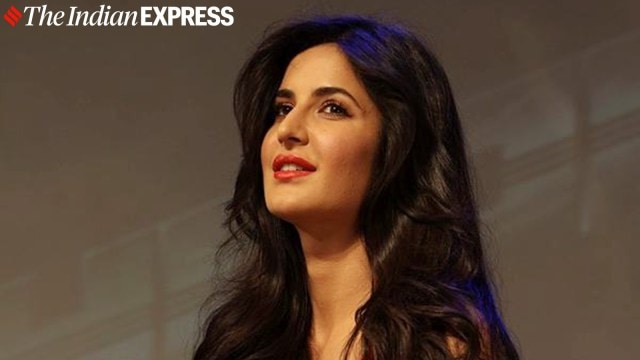📣 For more lifestyle news, click here to join our WhatsApp Channel and also follow us on Instagram
‘I get worried when I don’t have the instinct…’: When Katrina Kaif shared her trick to stop overthinking small decisions; expert on why it works
When indecision strikes, Katrina uses a simple but effective tool: making a list of pros and cons.
 Katrina Kaif on taking tough decisions in life (Source: Express Photo by Dilip Kagda)
Katrina Kaif on taking tough decisions in life (Source: Express Photo by Dilip Kagda)Decision-making can be straightforward for some and a source of constant second-guessing for others. Katrina Kaif recently shared that she’s a “fast decision maker” who tends to trust her instincts.
During an interview with Yuvaa, where she sat down with actor Vijay Sethupathi and director Sriram Raghavan, she said, “I think I’m normally a pretty fast decision maker. I get worried when I don’t have the instinct about a decision. That’s when I can get stuck. Luckily, for me, that doesn’t happen very often. Do I want to do this? Yes. Do I want to go here? No. Am I going to do this or that movie? Yes or no. I’m quite clear, but small things I can get stuck on, and then I’m stuck,” she said.
When indecision strikes, she uses a simple but effective tool: making a list of pros and cons. “Those are the decisions I worry the most about because I fear that I can’t feel my instinct.” She said that she came up with another solution, which helped her with some of her decisions. This involves changing the way she frames the problem, telling herself, “Maybe you don’t know because it doesn’t matter what you do in this particular scenario.” This reframing helped her break the cycle of overthinking.
But why do we sometimes have a strong instinct about certain decisions but feel completely stuck with others?
Existential analyst Gurleen Baruah tells indianexpress.com, “Instinct often comes from experience, self-awareness, and clarity about our values. When a decision aligns with who we are and what matters to us, our brain quickly recognises the pattern and sends a ‘go’ signal.”
On the other hand, she notes that we get stuck when the stakes feel unclear, when we lack information, or when the decision sits in a grey zone — where neither option feels clearly better. Sometimes it’s simply because the choice isn’t deeply meaningful to us, so our brain doesn’t prioritise it.
How effective is the ‘pros and cons’ method for making decisions?
According to Baruah, the pros-and-cons list can be “useful and a logical” way to decide something. It forces you to put vague thoughts into concrete words. But it’s not foolproof. Once our mind leans toward a choice, she says that we tend to tilt the list in its favour without realising it.
View this post on Instagram
“This is confirmation bias at work: we highlight the ‘pros’ for what we already want and downplay the ‘cons’ or vice versa. To use it well, you need self-awareness. Make your list, step away, and revisit it later with fresh eyes. The tool works best when you use it to clarify, not to convince yourself,” explains the expert.
Can reframing a decision as ‘it doesn’t matter what you do’ actually reduce anxiety, or could it lead to poor choices?
Baruah mentions that it depends on the type of decision. For small, low-stakes choices like what to order at a restaurant or which route to take to work, she says that reminding yourself that either option is fine can reduce overthinking and free up mental space for more important matters.
However, Baruah stresses that with significant decisions such as career moves, relationships, or financial commitments, this mindset can sometimes be avoidance in disguise. “When we downplay the importance of a meaningful choice, it can create emotional or cognitive dissonance later: you wanted one thing but acted in another direction. The key is to check in with yourself — are you genuinely easing anxiety over a minor choice, or are you minimising something that matters because it feels uncomfortable to face?”
📣 For more lifestyle news, click here to join our WhatsApp Channel and also follow us on Instagram





- 01
- 02
- 03
- 04
- 05






















